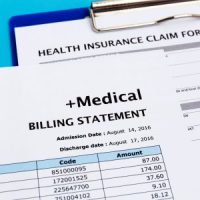Will My Health Insurance Cover My Car Accident-Related Medical Bills?

Dealing with the aftermath of a car accident often ends up being as challenging as the crash itself, especially when it comes to paying off medical bills. For instance, many accident victims struggle with determining which of their insurance policies will cover their injuries. The reality is that many different policies may end up covering a portion of an accident victim’s medical bills. It is not, for example, uncommon for both an auto insurance policy and a health insurance policy to cover some, if not all, of these expenses. There are, however, specific rules about which policy an accident victim must seek compensation from first.
PIP Benefits Cover the First $10,000 in Medical Expenses
While both of an accident victim’s policies may cover a portion of his or her medical bills, an injured party will first need to file a claim with his or her Personal Injury Protection (PIP) insurer, as Florida is a no-fault state. In Florida, drivers are required to carry $10,000 in PIP benefits, which will cover a policyholder’s medical costs (up to the limit of the policy) regardless of who was at fault for the crash. This means that accident victims can receive prompt medical attention without having to immediately grapple with issues of liability. These policies will, however, only cover 80 percent of a policyholder’s contracted billing rate (up to $10,000). Once this limit has been exceeded, which can happen relatively quickly, even after minor accidents, injured parties can turn to their health insurance providers to cover the remainder of their losses.
Health Insurance Covers a Portion of Accident-Related Medical Bills
After an accident victim exhausts his or her PIP coverage, health insurance becomes an important safety net, as these policies are designed to cover:
- Extended hospital stays;
- Specialized medical treatment, including surgery;
- Rehabilitation services, such as physical and occupational therapy;
- Prescription medications;
- Follow-up care; and
- Specialist consultations.
Which of these costs a health insurance policy covers will vary depending on the terms and limits of the policy itself, which is why it’s so important for accident victims to have a thorough understanding of the specifics of their health insurance policies, including coverage limits, co-pays, and deductibles. All of these factors could affect how much an injured party has to pay in out-of-pocket costs for long-term medical expenses.
Filing a Claim
There are specific steps that car accident victims will need to take when filing a claim for coverage through their insurers. For instance, in order to utilize PIP coverage after an accident, a claimant will need to seek medical care within 14 days of the crash. Failing to adhere to this deadline could result in the denial of coverage. Accident victims will also need to report the accident to their car insurance provider and then reach out to their health insurance company to coordinate additional coverage.
Our Tampa Car Accident Lawyers Can Help
If you have questions about how you will pay your medical expenses after a car crash, feel free to reach out to the experienced Tampa car accident attorneys at Anderson & Anderson for advice.
Sources:
flhsmv.gov/insurance/
leg.state.fl.us/Statutes/index.cfm?App_mode=Display_Statute&URL=0600-0699/0627/Sections/0627.736.html
